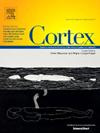Altered orienting of visuospatial attention in patients with vestibular disorders
IF 3.3
2区 心理学
Q1 BEHAVIORAL SCIENCES
引用次数: 0
Abstract
The vestibular system, one of the earliest sensory systems in vertebrates, is crucial for encoding head and trunk movements. Research in stroke patients with spatial attention deficits and studies manipulating vestibular signals in healthy individuals suggest that the vestibular system is also involved in orienting visuospatial attention. However, the specific interactions between vestibular and attentional systems and the consequences of vestibular pathologies on attentional functions are still poorly understood.
In this study, we investigated the impact of vestibular disorders on the orienting of automatic (exogenous) and voluntary (endogenous) attention in patients (N = 16) with acute (AVS), episodic (EVS) or chronic (CVS) vestibular syndromes, who were compared to a control group (N = 16) of age-matched healthy participants. The two groups were assessed using endogenous and exogenous versions of the Posner cueing task. Cognitive functioning and anxiety were evaluated with the Montreal Cognitive Assessment (MoCA) and the Beck Anxiety Inventory (BAI), respectively.
Vestibular patients exhibited selective impairments in maintaining voluntary attention in the endogenous task, particularly those with EVS and CVS, compared to the controls. In addition, vestibular alterations influenced the automatic right-lateralized attention system, as evidenced by a reduced rightward attentional bias in the exogenous task in vestibular patients. Anxiety, aging, or the overall cognitive function did not influence the observed attention deficits.
The evidence that vestibular disorders differentially affect voluntary and automatic orienting of visuospatial attention has relevant implications for the assessment and treatment of patients with vestibular disorders, the rehabilitation of stroke patients with spatial attention deficits, and space research.
前庭疾病患者视觉空间注意力定向的改变
前庭系统是脊椎动物最早的感觉系统之一,对编码头部和躯干的运动至关重要。对空间注意缺陷中风患者和健康人前庭信号操纵的研究表明,前庭系统也参与了视觉空间注意的定向。然而,前庭和注意系统之间的具体相互作用以及前庭病变对注意功能的影响仍然知之甚少。在这项研究中,我们研究了前庭疾病对急性(AVS)、发作性(EVS)或慢性(CVS)前庭综合征患者(N = 16)自动(外源性)和自愿(内源性)注意定向的影响,并将其与年龄匹配的对照组(N = 16)进行了比较。用内源性和外源性波斯纳提示任务对两组进行评估。认知功能和焦虑分别用蒙特利尔认知评估(MoCA)和贝克焦虑量表(BAI)进行评估。与对照组相比,前庭患者在维持内源性任务的自愿注意力方面表现出选择性损伤,特别是那些有EVS和CVS的患者。此外,前庭的改变影响了自动右偏侧的注意系统,前庭患者在外源性任务中减少了向右的注意偏倚。焦虑、衰老或整体认知功能对观察到的注意力缺陷没有影响。前庭功能障碍对视觉空间注意自主定向和自动定向的影响对前庭功能障碍患者的评估和治疗、卒中空间注意缺陷患者的康复以及空间研究具有重要意义。
本文章由计算机程序翻译,如有差异,请以英文原文为准。
求助全文
约1分钟内获得全文
求助全文
来源期刊

Cortex
医学-行为科学
CiteScore
7.00
自引率
5.60%
发文量
250
审稿时长
74 days
期刊介绍:
CORTEX is an international journal devoted to the study of cognition and of the relationship between the nervous system and mental processes, particularly as these are reflected in the behaviour of patients with acquired brain lesions, normal volunteers, children with typical and atypical development, and in the activation of brain regions and systems as recorded by functional neuroimaging techniques. It was founded in 1964 by Ennio De Renzi.
 求助内容:
求助内容: 应助结果提醒方式:
应助结果提醒方式:


